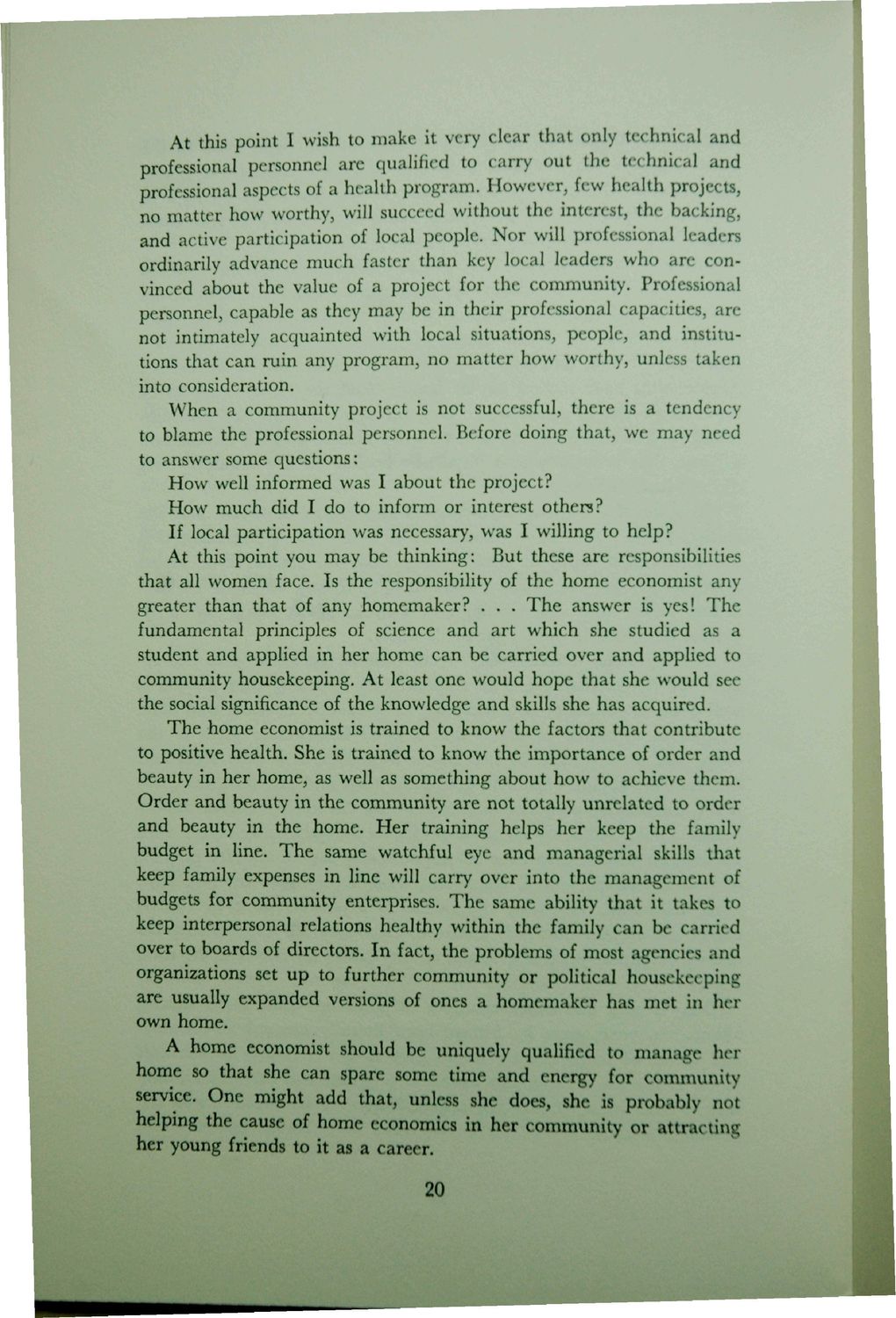| |
| |
Caption: Dedication - Home Economics - Challenge of Home Economics
This is a reduced-resolution page image for fast online browsing.

EXTRACTED TEXT FROM PAGE:
At this point I wish to make it very clear that only technical and professional personnel are qualified to carry out the technical and professional aspects of a health program. However, few health projects, no matter how worthy, will succeed without the interest, the backing, and active participation of local people. Nor will professional leaders ordinarily advance much faster than key local leaders who are convinced about the value of a project for the community. Professional personnel, capable as they may be in their professional capacities, are not intimately acquainted with local situations, people, and institutions that can ruin any program, no matter how worthy, unless taken into consideration. When a community project is not successful, there is a tendency to blame the professional personnel. Before doing that, we may need to answer some questions: How well informed was I about the project? How much did I do to inform or interest others? If local participation was necessary, was I willing to help? At this point you may be thinking: But these are responsibilities that all women face. Is the responsibility of the home economist any greater than that of any homemaker? . . . The answer is yes! The fundamental principles of science and art which she studied as a student and applied in her home can be carried over and applied to community housekeeping. At least one would hope that she would see the social significance of the knowledge and skills she has acquired. The home economist is trained to know the factors that contribute to positive health. She is trained to know the importance of order and beauty in her home, as well as something about how to achieve them. Order and beauty in the community are not totally unrelated to order and beauty in the home. Her training helps her keep the family budget in line. The same watchful eye and managerial skills that keep family expenses in line will carry over into the management of budgets for community enterprises. The same ability that it takes to keep interpersonal relations healthy within the family can be carried over to boards of directors. In fact, the problems of most agencies and organizations set up to further community or political housekeeping are usually expanded versions of ones a homemaker has met in her own home. A home economist should be uniquely qualified to manage her home so that she can spare some time and energy for community service. One might add that, unless she does, she is probably not helping the cause of home economics in her community or attracting her young friends to it as a career. 20
| |